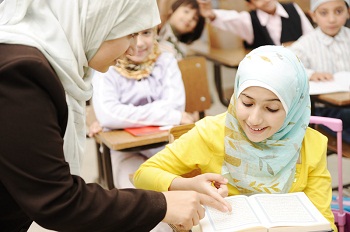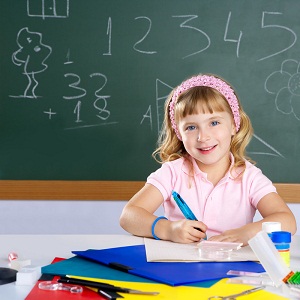Productive Learning
By Shahnaz Bahman
“I don’t want to go school!” Have you ever heard this from your child? Do you find it difficult to wake your child up for school? Does your child make any excuse not to go? — Then you need to do a stop check.

Negative emotions about school
How children feel about their school has a great impact on both their motivation and performance. Children’s emotions can influence their every day decisions. Children’s relationships with each other at class or school can be one of the main factors. If a child is getting bullied, for example, or doesn’t have enough skills to build good social relationships with other children, they might feel unhappy, lonely, insecure or even miserable.
It’s important to know how your child is doing emotionally and socially in school. Research by United Nations Educational, Scientific and Cultural Organisation (UNESCO) on What makes children learn? Suggests, that the first factor that affects a child’s learning is the relationship with their peers. They may become emotionally preoccupied and in turn, this could affect concentration and the learning process in class.
Relationship with the teacher
Teachers have a great impact on children. They can influence children both positively and negatively and sometimes the marks they leave on children’s lives can last forever. It will assist you to help your child if you can check on how they feel towards their teacher. If there are negative emotions, then take the first opportunity to meet your child’s teacher and discuss the issue — making sure that your child is in safe hands.

Classroom environment
The classroom environment has a
great impact on your child. If a child is in an orderly, clean and
positive learning environment, they can definitely enjoy a better
learning experience. However, if the class is dull and chaotic, there
are no clear rules and teacher’s expectations are not made clear, the
child might feel demotivated and even insecure. It is a good idea for
parents to visit their children’s classroom to be able to see for
themselves where their child spends their day. A rich, orderly and colourful learning environment is really appealing to children.
Teaching approach
Children
have different learning styles, kinds of intelligence, background
knowledge and interests. You will be lucky if your child is with a
teacher who differentiates her instructions to suit children’s learning
styles and multiple intelligences. Every child can learn, be
challenged, improve and achieve better learning outcomes. It’s how the
learning experience is approached that makes the difference.
Schools need to challenge to enable new learning experiences to take place, however they must also be supportive to make it a success. This way the child will feel a sense of achievement and self satisfaction. When the tasks or lessons are too challenging the child may become frustrated. When the right kind of support is not given, the child may feel a sense of failure. If this feeling is constantly repeated the child will lose self confidence; they will doubt their ability and start to develop a negative self image. When this happens, the child will look at the learning experience negatively and once the challenge arises again, they may feel that they can’t do it or simply shut down. When some children reach this stage it may be difficult to get them interested in learning. They become demotivated and unresponsive, making excuses to avoid doing work or going to school.
Nothing succeeds like success. If
your child is in downward spiral, it will help to discuss it with the
teacher and together form a plan to help your child. Begin with what
they can do, and take them gently down the road to success. Once the
child feels they can do it, you will see a marked improvement; their eyes will shine and a beautiful glow of achievement will brighten their face.
On
the other side of the spectrum, some children are not challenged
enough. This can lead to boredom in class and cause disruptive
behaviour. They may even be labelled as children with behavioral
problems. Of course, not all children with behaviour problems at school
fall under this category. There can be many other reasons why
children develop behaviour problems. However, if your child feels
unchallenged then visit the school to discuss this issue. The teacher
can try to provide your child with more challenging tasks, or
extension work after normal class work has been completed. This will
create the learning satisfaction that his brain is craving. Recognising
your child’s extra effort will motivate them to keep up the extra or
challenging tasks and enjoy their success.

Check your child's emotional baggage
Children
are usually very sensitive. They pick up emotional signals from what
goes on around them and they may not always be willing to talk about
what is on their minds and in their hearts. Checking your child’s
emotional baggage on occasion and when you have cause for concern can be
of great help. This can be done through friendly conversations, through
play or even by inviting them to draw and asking them to talk about
their drawings.
Accumulated negative emotions of everyday life
can affect children’s well being and their readiness to learn. A
lively, happy child will be more willing to go to school, to have fun
and enjoy learning than one who is preoccupied with handling his
negative emotions. If a relationship is built on unconditional love and
trust, children will be ready to share their thoughts and feelings and
we can help them to work through their negative thoughts and emotions
|
|



